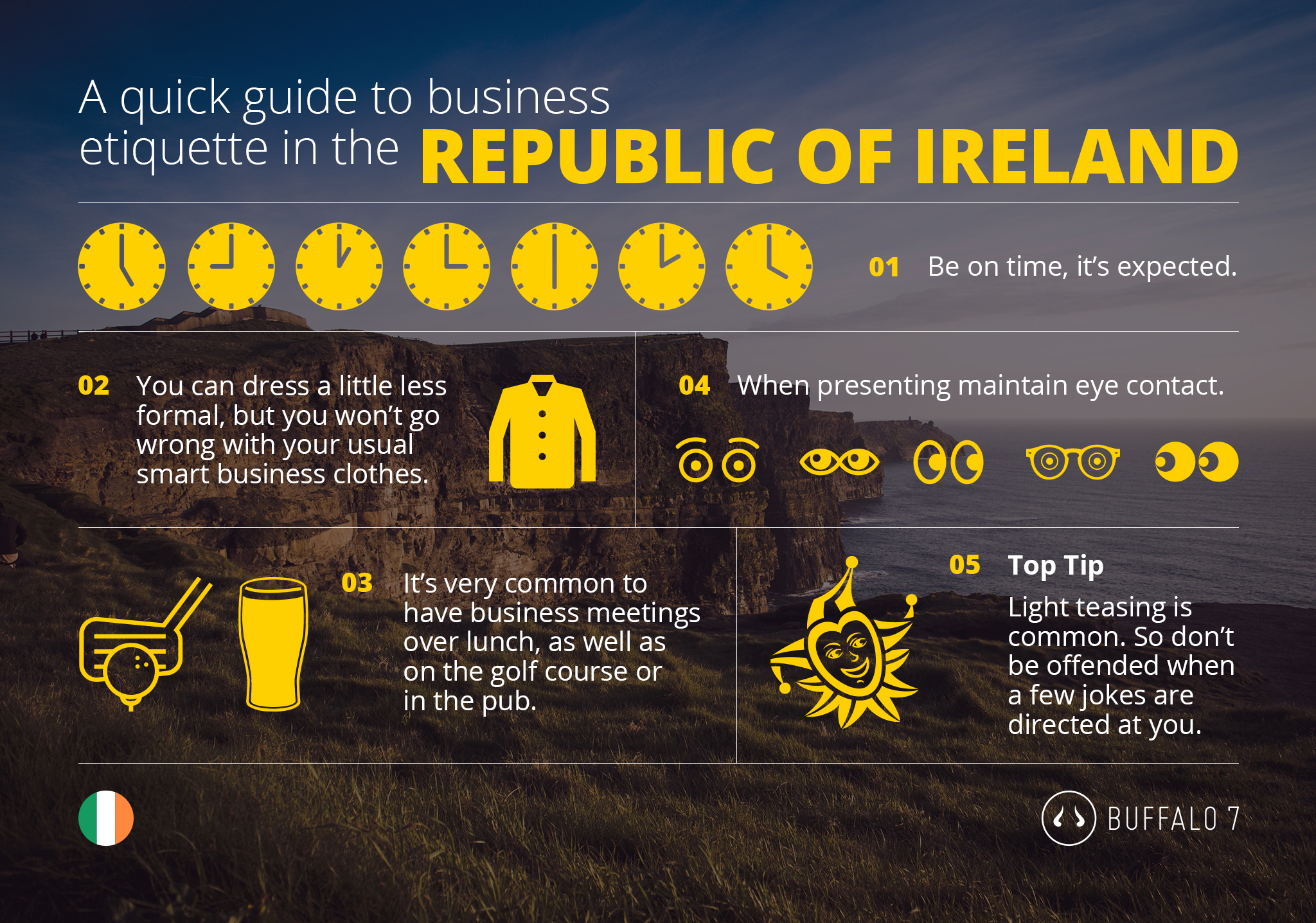Ireland vs. American Business Communication Practices
Irish Business Practice
Ireland practices informal business cultural customs, which demonstrates the connection between business and personal relationships (“Business Travel,” 2021). Larry Samovar, author of Communication Between Cultures, asserted that although “social contexts are similar across cultures, the rules in those contexts are dissimilar” (Samovar, 2017, p.341). This idea framed business communication as customs and rules that depend on cultural contexts and values (Samovar, 2017, p.341). For example, if I attended an Irish business meeting, I should shake people’s hands and engage in “small talk” because it demonstrates trust and builds relationships (“Business Travel,” 2021; “Business Culture,” 2022). The Culture Atlas’ article “Business Culture” reinforced this notion when they argued that Irish business “meetings [are] set in semi-social settings” where businesspeople emphasize “socialization and building rapport” (“Business Culture,” 2022). This article implied that Irish businesses cultivate informal relationships and address people by their first names (“Business Culture,” 2022). When I communicate with an Irish executive, I should formally address them by their title at our first meeting and use first names afterwards (“Business Travel,” 2021). This relationship between formal and informal business traditions raises one question: how should Americans adjust their communication style to match an Irish company’s relaxed atmosphere?
 |
| How to Conduct Business in Ireland |
"A Guide to Working in Ireland"
Cross-Cultural Communication Challenges Between Irish and American Businesses
While Ireland and the United States share similar business practices, American and Irish citizens may misinterpret each other’s business customs, which challenges intercultural communication (Samovar, 2017, p.341). Samovar claimed that if people interact with other cultures, they should be “aware of [their] own culture’s rules and how they might differ [across cultures]” (Samovar, 2017, p.342). This idea illustrated that cultural context and values affect how people communicate (Samovar, 2017, p.342). For example, if I coordinated a meeting with an Irish counterpart, I should expect communication challenges when we decide the location and structure of the meeting, which demonstrates the conflicts between formal and relaxed business environments (“Business Culture,” 2022; “Working in the United States can be Equal Parts Thrilling and Daunting”). Samovar reiterated this notion when he argued that “business protocol involves forms of behavior [that have] cultural differences” (Samovar, 2017, p.344). For example, if an American became an employee for an Irish business or employed an Irish citizen, they should recognize that Americans focus on accomplishing goals while Ireland builds relationships which creates challenges between formal and informal communication styles, such as the use of humor or small talk in meetings (“Working in the United States can be Equal Parts Thrilling and Daunting”). I could solve these communication difficulties, such as when to use physical contact, by my employee about Ireland's nonverbal communication practices ("Business Communication," 2019). I could teach a new employee to research possible social locations for business meetings that provide a relaxed atmosphere conducive to building relationships ("Business Culture," 2022). Finally, they could refrain from using physical contact or offering gifts outside of a social context (“Ireland’s Work Culture”). My new employee could use verbal communication signals that emphasize trust and relationship-building ("Business Communication," 2019; “Business Culture,” 2022).
 |
| Business or "Workplace" Meeting in Ireland |
Comments
Post a Comment